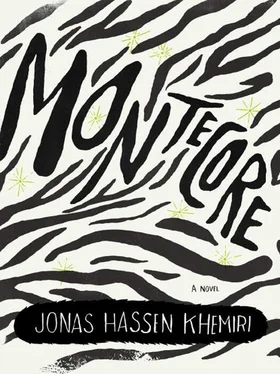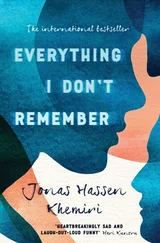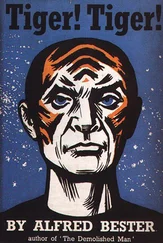On Norstedts’s net page I found an extract of your novel. My appraisal is … hmm … let me be honest and hum the eighties hit by Yazz: “The only way is up,” yes? Your novel seems to me perforated with inconsistencies and besmirched by precisely those foul words that your father denounced. “Bitches”? “Fucking”? Why does the book use precisely that language which your father hated the most? No wonder that people “misunderstand.”
Another question involves your interviews. Why this expanded multitude? Did you not write that you would never allow yourself to be interviewed by any “goddamn fucking bourgeois philistine newspaper”? Shouldn’t anonymous transparency à la your idol Thomas Pynchon be your ideal? And now your beardless figure is being exposed in revolutionary magazines like Woman’s World . Have your principles already been abandoned? Admit that it went more quickly than prophetized. Who is “the betrayer” now? Is it still your father? Or are you actually cut from the same crap?
Respond me soon.
Your disquieted friend,
Kadir
PS: A terminating question. What is your principal character actually called? Halim or Hamil? Hamid or Harim? The Swedish journalists seem to be concerningly disagreed.
In the next scene we soar the reader forward to the year 1969. After his military service your father has decided to leave Jendouba.
Write:
“In Jendouba there were imams and figs, mustachioed women and spiny palms, tired oxen and cyclical desert storms. But there was nothing that my father likened as a home …”
With astonishing generosity, Cherifa had promised him finances for studying legal courses in the metropolis of Tunis. We said our farewells but promised a soon reunion.
I sought work at Emir’s cookie factory. With the security of the handshake and my smile wide in both senses, I informed Emir that an expertish cookie sorter stood ready for employment and the smick was sufficient for a salary. Ten minutes later I stood parked at the conveyor belt with a dirty white coat and a paper hat for the premiere of my work. The heat in the factory was hellish; the smoke billowed from the metal discs of the oven, which twisted and thundered and tumbled down new cookies of sporadic sorts approximately every ten seconds. All day long I picked cookies for the cartons, four of each, no more, no less. All while Emir circulated nearby and verified the piled cookies of multitudes. My fingertips were soon burned to hardness, like the fingertips of famous players of electric guitars.
It was at the cookie factory where, during the summer of 1970, I reestablished my relation to your father. Still today I memorize how he sullenly invaded the factory, took upon himself a paper hat, and was awarded the position on my right side.
“Abbas!” I cried. “Praise my congratulations for your return to Jendouba! What happened with your legal studies?”
“Who are you?”
Your father’s tongue had now darkened with a certain overacted metropolitan accent.
“It’s me, of course! Kadir, your antique best friend!”
“Yes, of course, now I memorize you.”
“Why so melancholy?”
“Excuse me. But my mood is far from sunshine. Political turbulence has strained Cherifa’s economy. The finances ran out and therefore I have been forced to pause my studies to stand here as an idiotic cookie picker. Trapped in this damned, miserable, ass-holey, depressed, hot-as-an-anus, abominable hell city.” (Here your father continued with even more insultations than I remember.)
“But … there’s one pleasure in any case. Right?”
“What is that?”
“That we have rediscovered our friendship?”
“Sure,” mumbled your father (but I suspect that his happiness didn’t really compare to mine).
Write me … do you carry any photographic evidence of your father’s exterior as a twenty-year-old? His outfitting was … how shall I write it … bravissimo in its excellence. All the other farmer boys at the cookie factory bore a solidarity in short-cropped hairstyles and bath slippers. Your father, home from Tunis, was different. He was the first man in Jendouba who presented a style of such long hair. His black locks curled effeminately, and (never inform him of this) when I saw him again a suspicion germinated in me that he had become infected with homosex. (Isn’t it interesting how his taste for long hair has been inheritaged by you? And that the photos he exposed of you in your pimply teenage years filled me with exactly the same suspicion?)
Your father’s cheeks had two smiling hollows, which he only demonstrated for women who sold casse-croûtes on breaks. His legs bore blue jeans of supermodern European bell-bottomed style and his favorises bore an increasing size that referred to early John Travolta or late Marvin Gaye. His tongue exposed a sudden knowledge of numerous European authors, artists, and poets. Many were impressed by your father’s newfound person. (Even me.)
• • •
Write:
“Let us present my father’s youthful exterior. Home from Tunis, his eyelashes were arches of blackness, his eyelids curtains over brown velvet wells, his corporeality that of a growing Greek god. His mentality was a cosmopolitan artist’s and his face referred at the least to a young Antonio Banderas.”
(Your father’s modesty would of course redden his cheeks and not at all agree with me about this description.)
Our shared words, however, were few in number until the autumnal day when the photographer Papanastasopoulou Chrysovalanti afflicted Jendouba. Do you know this photographer’s work? One thing is my secure certainty — his name MUST be simplified in the book.
The rumor about Papanastasopoulou’s arrival was whispered on streets and squares; his form wandered about the souk and the cultivation fields with his camera like a friendly weapon. The rumor whispered that at night one could see his photographic lightning flash the sky (like lightning) in an attempt to capture Kroumirie Mountain’s moonlit silhouette. The street boys followed his path and played charades in the hope that the clicking sound would immortalize their forms into the exhibition that he had been commissioned by the Institute of Greek Culture to implement. Certain tradition-loving tongues mumbled “Haram” and described how the Greek had tried to photograph hajjis outside the mosque, even though they had tried to hide their faces.
The next scene is a regular workday; the metal trays are turned and they tumble down packable cookies; the sweat runs our faces and the clock ticks slowly; Emir swears in the office and your father is wearing his self-boasting, ever more worn-out gigolo jeans. After lunch he turns to me:
“Do you know whose body has been invited to the Greek photographer’s studio in order to be immortalized for the future?”
I denied and your father beamed:
“Mine!”
I praised my congratulations to your father’s fortunate happiness and inquired about the possibility of escorting your father as company to the Greek’s photo session. Your father conferenced his thoughts before he submitted his positive response.
After the termination of work we companied to the terracelike apartment that the photographer had rented for two weeks from a local clothes tailor for an astronomical price. The door was opened by an oiled Greek man with the age of a forty-year-old, a tight shirt with a flower motif, and sharp cornery teeth which glittered his large smile (and then disappeared quickly when he understood that we were two boys who had arrived for a visit).
My memory smiles when I think of the curious eyes that your father and I exposed in contact with our first photo session. All those things that your father would get to know in detail later were there, but right now they seemed most like spaceshiply equipment: the flash cables, the tripods, inside-out umbrellas, strongly aimed spotlight shine. I counted the number of cameras to be three of varied style and model. In focus for the tripod stood a half sofa on a patterned rug, and as photographic props the Greek had invested fezzes, fake mustaches, gold platters, tea services, djellabas, veils, decorative hookahs, and eight or nine pairs of leather slippers.
Читать дальше










